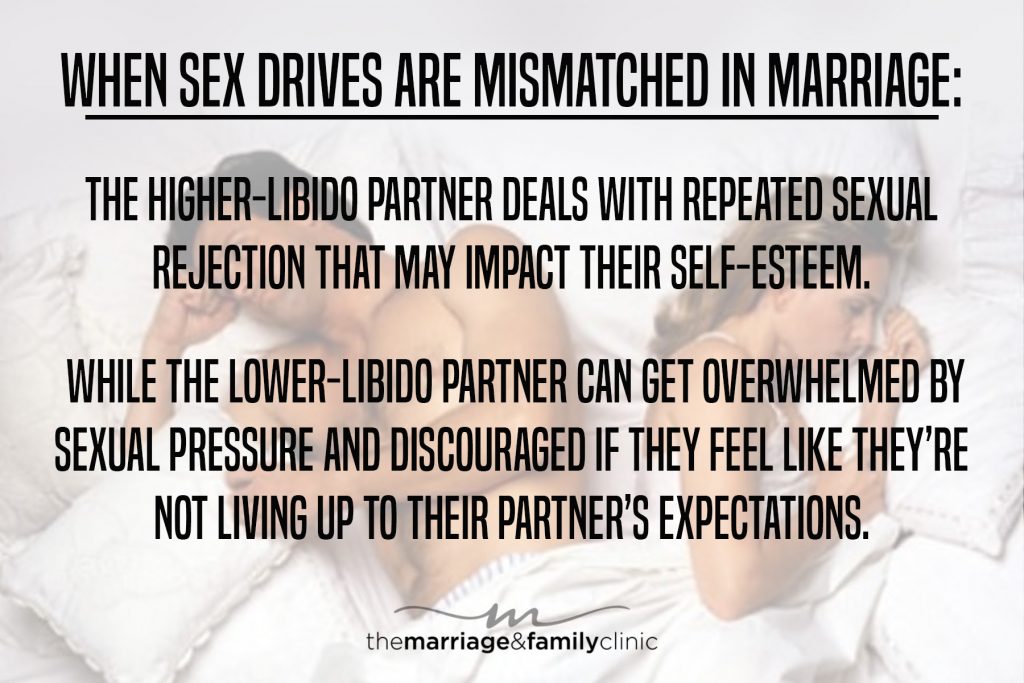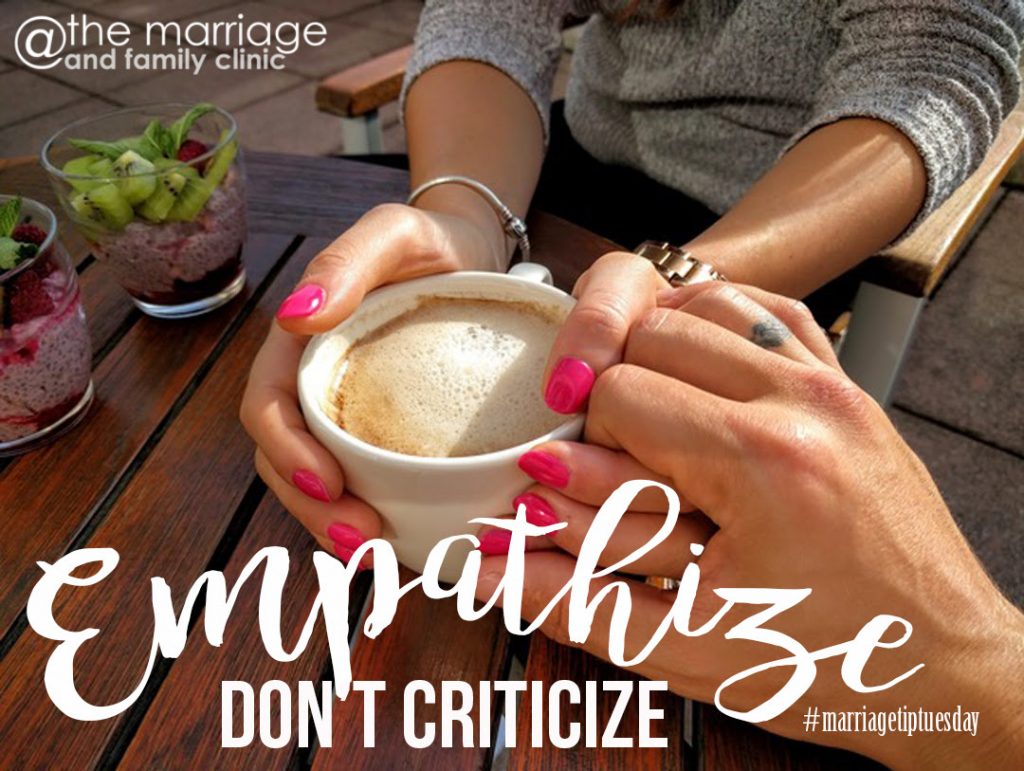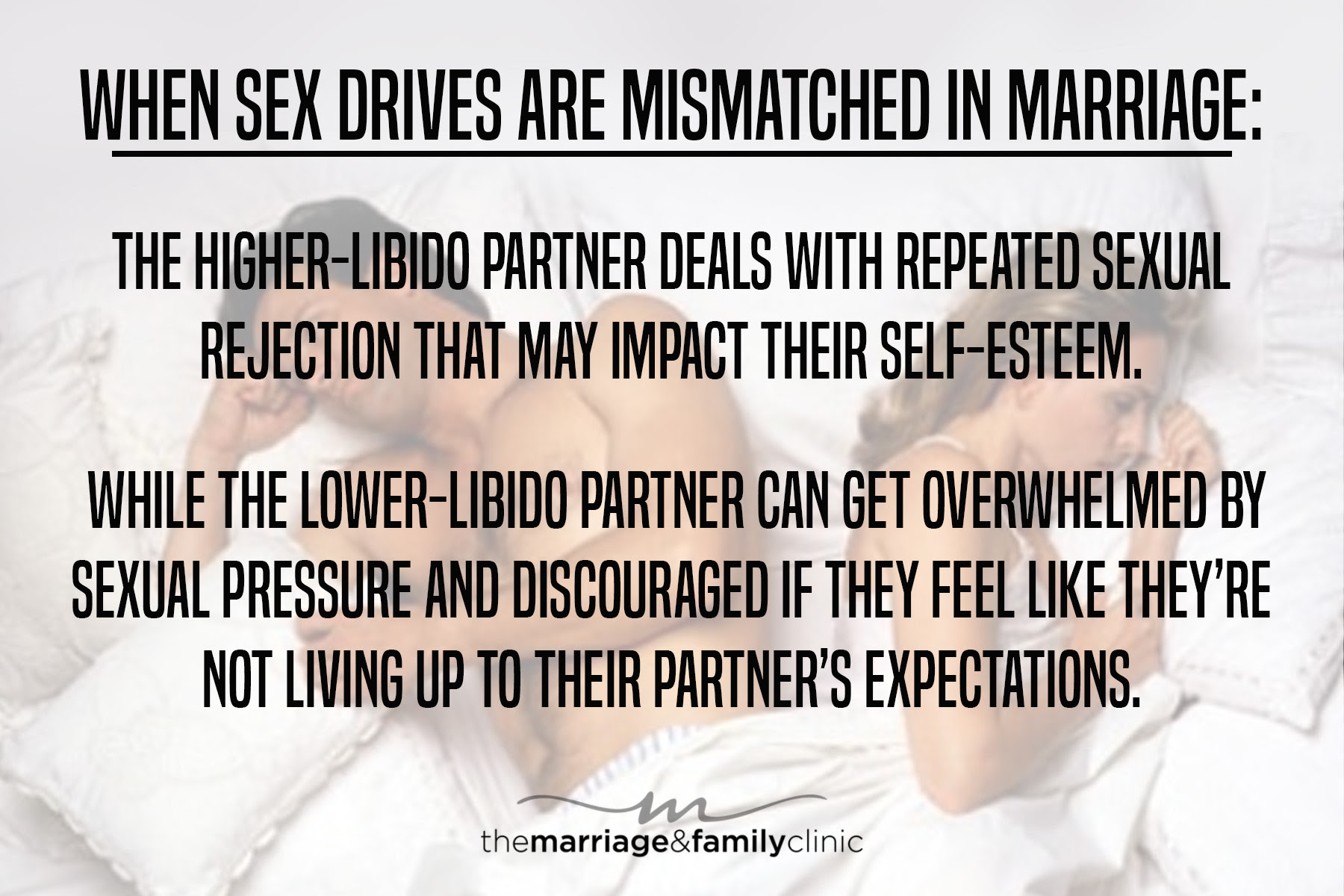HOW TO COMPROMISE WHEN IT COMES TO SEX
By The Marriage and Family Clinic
Mismatched sex drives are common,
that doesn’t make them any less frustrating.
Or any less important to fix!

Sexual desire is complex.
Countless factors can cause one partner to shy away from sex or another to need it more. It doesn’t help that in movies we always see happy couples have sex in the same ways. It’s always spontaneous, passionate, and frequent. A lot of couples we see say that they want to have more sex, but have different views; “but my partner wants it all the time,” or “they never want to have sex.”
But what if we told you that you and your partner are a lot closer in how often you want to have sex?
First, you need to find out what you both realistically want, so try this exercise:
(each of you should grab a piece of paper and pen and sit down together and answer these questions)
– How often do you think your partner wants to have sex each week?
– How often do you want to have sex each week?
–Compare these numbers.
You’ll usually find that you both actually want sex a similar amount. There will still usually be one of you who wants sex more or less, which is totally normal.
But the question is: how can you compromise but still feel satisfied with how often you have sex?
Here are a few tips to get you started.

For the partner who wants sex more:
Schedule Sex
Having a time where you know you will have sex may let you feel less urgency to have sex at other points during the week.
Incorporate Non-sexual Touch
Non-sexual touch is a great way to feel close and loving to your partner, without any pressure.
For the partner who wants sex less:
Go on Dates
It’s not only an opportunity to spend a romantic night out together to raise that desire for sex, but it’s great to simply feel energized and more connected to your partner.
Think Erotically About your Partner
Picturing someone in this way will eventually have you naturally thinking of them sexually.
Compromise is NOT doing what one partner wants, but to come to an agreement that both of you feel satisfied, which means both of you will have to budge a little.
As we mentioned before, sexual desire is complex! If this is something you can’t come to an agreement on, it will be worth seeking out a therapist to provide a road map, especially if the problem has been going on for a while.

EMPATHIZE, DON’T CRITICIZE
Instead of thinking your spouse is flawed, try to understand why they are acting/feeling the way that they are.
This is going to be super important if you are in gridlock about sexual intimacy!!
But will be SUPER helpful for any issue in your relationship.
Take a step back from your own position (because we are talking about sexual desire, step back from whichever role you fall into) and look at the problem from your partner’s point of view. If you find this hard to do, then start with an open conversation about how they are really feeling and just LISTEN to see how the issue is affecting them. If you are being honest with yourself and open to what they are saying, you will start feeling their views.
When you choose to empathize with your partner it shows them that you want to KNOW them and you care about who they really are.
This is where real intimacy is made!

DO YOU FEEL CONNECTED TO YOUR PARTNER?
We all yearn to feel connected, but what is the connection you are really yearning for in your relationship?
Connection is intimacy, and not just sex and physical touch. True intimacy is knowing and being known. Meaning, when you are really connected to your partner through intimacy you are able to share your thoughts, feelings, goals and dreams without fear of judgment.
When you are having feelings of disconnection, start with connecting emotionally instead of through time. You may have noticed that even though you are spending more time with your spouse because of Covid-19, you are feeling disconnected.




